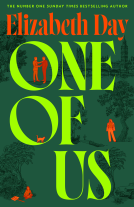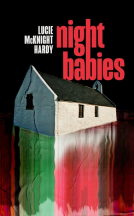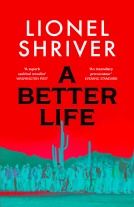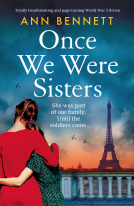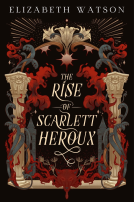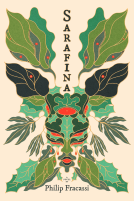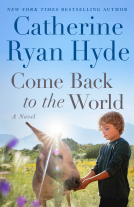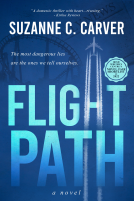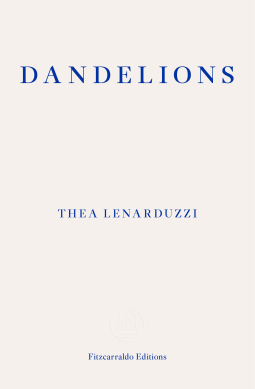
Dandelions
by Thea Lenarduzzi
This title was previously available on NetGalley and is now archived.
Send NetGalley books directly to your Kindle or Kindle app
1
To read on a Kindle or Kindle app, please add kindle@netgalley.com as an approved email address to receive files in your Amazon account. Click here for step-by-step instructions.
2
Also find your Kindle email address within your Amazon account, and enter it here.
Pub Date 7 Sep 2022 | Archive Date 18 Apr 2023
Talking about this book? Use #Dandelions #NetGalley. More hashtag tips!
Description
A family memoir rich in folk legends, food, art, politics and literature, Dandelions heralds the arrival of an exceptional writer: bold, joyful and wise.
Where, or what, is home? What has it meant, historically and personally, to be ‘Italian’ or ‘English’, or both in a culture that prefers us to choose? What does it mean to have roots? Or to have left a piece of oneself somewhere long since abandoned?
In Dandelions, Thea Lenarduzzi pieces together her family history through four generations’ worth of migration between Italy and England, and the stories scattered like seeds along the way. At the heart of this book is her grandmother Dirce, a former seamstress and a repository of tales that are by turns unpredictable, unreliable, significant. Through the journeys of Dirce and her relatives, from the Friuli to Sheffield and Manchester and back again, a different kind of history emerges.
Advance Praise
‘Beautifully observed and written with heart and an infectious curiosity, Thea Lenarduzzi's Dandelions parses the complex ways in which we live out our histories and carry the past within us, through ritual, food, language and legend. Like rifling through an overflowing drawer or opening an ancient photo album, Lenarduzzi unearths glinting gems of family fiction, introducing us to a shifting cast of memorable characters whose journeys, stories and passions it's our joy to share.’
— Francesca Wade, author of Square Haunting
‘In this subtle and elegant family memoir, Thea Lenarduzzi gathers the ghost seeds between her present life in England and her family’s past in Italy. A meditation on roots, inheritance and homesickness, Dandelions is also a reminder that what will survive of us is love.’
— Frances Wilson, author of Burning Man
‘Dandelions is spellbinding. Like the polished beads of a secular rosary, each bearing a remembrance, Lenarduzzi's ancestral memoir conjures intimate histories of migration, love, and loss across decades of passages between Italy and England. Her redoubtable grandmother Dirce will lure you in, as she unfolds fragmentary myths with a sly wit, whispering ascolta, “listen” – and you won't resist.’
— Anna Della Subin, author of Accidental Gods
‘Thea Lenarduzzi has written a profoundly evocative, lyrical meditation on family and kinship in their largest sense. A Natalia Ginzburg-inspired wandering through the life of her grandmother in prewar Italy and postwar London stimulates an exploration of home, homesickness, home truths, and homecomings. Lenarduzzi has an impressively patient capacity for acts of sustained attention: the dandelion will never be the same again!’
— Lara Feigel, author of The Group
Available Editions
| EDITION | Other Format |
| ISBN | 9781913097974 |
| PRICE | $17.95 (USD) |
| PAGES | 288 |
Available on NetGalley
Average rating from 35 members
Featured Reviews
 Kerry H, Educator
Kerry H, Educator
Lenarduzzi presents readers with a fine debut, a memoir that is intelligently written, binding history, sociology and mythology into a flowing and gorgeously written narrative. This is a personal narrative tackling the question of what represents 'home', but also what represents 'remarkable'? In this narrative, Lenarduzzi uses the history given to her by her grandmother, who moved from Italy to the UK, and links it to herself, and (fascinating) information about dandelions. Metaphorically speaking, who knew dandelions were edible, for a start? And the link to the way in which dandelions seed themselves so easily is well used. Unsurprisingly, Lenarduzzi won the prestigious 2020 Fitzcarraldo Editions / Mahler & LeWitt Studios Essay Prize for her proposal for this book, and it seriously does not disappoint. A beautiful piece of work. Highly recommended.
My grateful thanks to Fitzcarraldo Editions and to Netgalley for the ARC.
 Joseph C, Reviewer
Joseph C, Reviewer
In 2020, Thea Lenarduzzi won the Fitzcarraldo Editions Essay Prize with the initial chapter of what would become her hauntingly beautiful debut – Dandelions. Lenarduzzi was born and raised in Northern Italy, to an Italian father and an English mother. She now lives in the UK, in an uncanny reiteration – whether through destiny or choice – of the history of their forebears. Her Italian-born grandparents and great-grandparents had settled for long spells in England first between the wars, then in the 1950s. Dandelions is their story, told through the perspective of Lenarduzzi’s paternal grandmother, Nonna Dirce. Hours of recorded interviews with the redoubtable matriarch are combined with the author’s own memories and distilled into a family history which, through a tale of loves gained and lost, joys and sorrows, deaths and new beginnings, explores the themes of identity and belonging over several generations.
This memoir is as much the author’s own story as that of Nonna Dirce and her ancestors, a story lived in (and in between) two very different countries both of which were, in their own way, “home”. The dandelions of the title are a potent and multi-faceted symbol. They represent Nonna Dirce, who gathers them to prepare them as condiment to her dishes. Their seeds, spreading far and wide on the breath of the wind, evoke the diaspora of whole communities who leave their country to settle down elsewhere. They also remind us, however, of cultural differences – they are ubiquitous in both Italy and the UK, but in one country they are considered edible, in the other, not, thus highlighting the challenges of the immigrant experience:
"All immigrants have narratives in which the mundane is ripe with symbolism, centred on moments in which the difference between them and us, the natives and the newcomers, are somehow distilled. We recycle abstruse parables, pass them down the generations, and find in them nourishment, confirmation of something never fully articulated... We Italians know how good gently wilted tarassaco tastes, once tossed with salt, perhaps a splash of vinegar or squeeze of lemon, and the essential olive oil, which, in England, you had to buy from the pharmacy back then (t’immagini? Can you imagine?). The British, on the other hand, do not. Dandelion and burdock is one thing, they’d say, picking weeds from a wasteland, something else entirely".
Lenarduzzi poignantly expresses the often conflicting emotions of immigrants and persons with dual citizenship, who may call two countries their home and yet feel strangely out of place in either, a sense of “in-betweenness”. There’s a certain serendipity in the fact that I read this memoir soon after Bejn Bejnejn by Palestinian-Maltese author Walhid Nabhan, a short story collection which explores the same theme of dual citizenship and (non-)belonging. At one point, Lenarduzzi conveys the strange but exquisite irony of her living for a time in France, physically half way between the two places she calls home.
"By revising my attachments to England and Italy, I was performing a dual belonging which I did not confidently feel. There had always been a subtext of insufficiency, even fraudulence, about this hypthenated identity I had inherited – that I was not English enough to call myself English but not Italian enough to call myself Italian – and, in Paris, this intensified. To reach firmer ground, I pushed back against this other culture that now surrounded me.... The irony is that the betwixt and betweenness of being in a country that sat almost exactly halfway between these two places I call home was a fairly accurate reflection of the stuff in me."
Dandelions would have worked well enough as a lyrical family memoir, suffused with nostalgia and melancholy. But Lenarduzzi goes further. Details from her family’s past trigger intriguing sociological and historical ruminations: on the rise and fall of Fascism (and nagging, guilty doubts as the family’s wartime allegiances); Mussolini’s obsession with aviators; the racy romances or romanzi rosa of Amalia Negretti Odescalchi detta “Liala”; dark Friulian folklore courtesy of the writings Carlo Ginzburg; Garibaldi and the Risorgimento; the anni di piombo (literally the “years of lead”, marked by terroristic attacks by extremist groups); the differences between the packs of playing cards used in different regions of Italy, testament to the diverse historical and cultural influences which formed this relatively modern state. Thus, one family’s memory trove becomes a microcosm reflecting the heritage of a whole country.
This book held a particular resonance for me since I come from Malta, which is so close to Italy and which is marked, thanks to own chequered history, by the same Mediterranean/British dichotomy experienced “in the flesh” by Lenarduzzi’s family. But really it is a truly special debut which I would recommend to any reader. It drew me in from its very first page, where Maniago, the small Italian town where Nonna Dirce was born, is described as a place “where the plains pucker along the seam of the north-eastern Alps”. It is an arresting metaphor and, we soon learn, a particularly appropriate one too since Dirce is a fine seamstress. Small gems such as these pepper the text, making this a wonderful reading experience, and likely one of the best books I’ll read this year.
https://endsoftheword.blogspot.com/2022/08/dandelions-by-thea-lenarduzzi.html
This book blends the personal and political in a truly powerful way.
Beginning with the tale of her grandmother collecting dandelions and the importance of dandelions and similar 'weeds' to immigrants (drawing a line between 'unwanted' plants and the immigrant experience of not quite belonging), this tale soon weaves into a much bigger tale about the feeling of being uprooted, about the role of memory in holding on to who you are and where you are from, and about what we inherit from the people around us.
We are almost a fly on the wall as Lenarduzzi interviews her grandmother, and asks her to share stories from her life, often revealing truly profound meditations on life and the human experience.
This book is a treasure, and above all else, is full of heart.
I received an advanced copy of this book from NetGalley in exchange for an honest review.
 Fiona S, Reviewer
Fiona S, Reviewer
Wow I don’t think I can overstate how much of an impression Dandelions has had on me: being British Italian myself, I’ve never seen a book devoted to the exploration of such complicated identity(ies) that I find myself torn between on a daily basis. I was moved to tears (a rarity) when Lena articulated her emotions at passport control. Throughout I cherished the tenderness in Lena’s interactions with her Nonna and, it has taken me some time to digest as this made me deeply miss my own Nonna.
With respect to linguistic idiosyncrasies, I loved the influence of Natalia Ginzburg which is felt throughout in Lenarduzzi’s work as she introduces phrases at first with translation and then when they come up again the reader is already so familiar with them that they have entered into the reader’s lexicon and rightly do not need for translations to be reiterated. Initially, it was slightly irritating for me as an Italian speaker to have to skip over the English translation but I am thrilled that Lena didn’t opt to merely render her conversations with her Nonna into English and made this accessible for non-Italian speakers and I am even more thrilled to see furlan/friulano included in an English-language publication. Moreover, overall I think this approach nicely echoed Natalia Ginzburg’s approach to introducing her own family’s sayings in Lessico Famigliare.
I am profoundly grateful to Fitzcarraldo Editions and Net Galley for this ARC and above all to Lena!
 Bianca B, Book Trade Professional
Bianca B, Book Trade Professional
The most beautifully written memoir of family, identity and place. The author and her family bounced off the page and I haven't stopped thinking about them since.
 Reviewer 449342
Reviewer 449342
A wonderful portrayal of Italian family life, ancestry and tradition. I loved the smattering of linguistic and historical facts peppered throughout and thoroughly enjoyed this book. Thanks NetGalley!
 Bookseller 173414
Bookseller 173414
Thea Lenarduzzi’s Dandelions is a beautifully written history of her Italian family, but it is also an examination of the migrant experience, and family narratives, each one unique, some stories true, some stories embellished. She says “It takes one word, one sentence, one of the old ones from our childhood, heard and repeated countless times... If my siblings and I were to find ourselves in a dark cave or among millions of people, just one of those phrases or words would immediately allow us to recognize each other.” This is a beautiful poetic account, that like the tales of Thea’s Nonna will “not be tamed by anything like conventional narrative structures” Loose threads brought together by poetry. I loved this book, I loved the ideas, the descriptions and the diversions. This is a book to sit somewhere quiet with, when you have time to give to the words.

